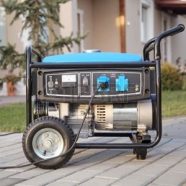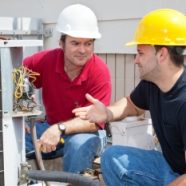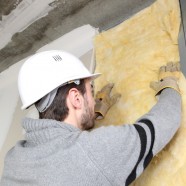Why Cheap Standby Generators May Cost More in the Long Term
Have you ever really thought about the term “grudge purchase?” You know the types of things we mean. Insurance. Dentistry. Car repairs. They’re all things we need, but we don’t really want to spend our hard earned money on them. While we’d like to believe otherwise, we realize that a standby generator or a whole home generator probably falls into the same category. They may be necessary for life in South Florida, but they’re not really sexy or exciting, are they?
That might be why so many people are tempted to buy cheap units, and hope for the best. We’ve seen how that turns out though, and we’d like to advise you against it. That cheap generator may cost less upfront, but there’s a good chance it will cost more in the long term, and here’s why.
Poor After Sales Service
When you buy a cheap generator, chances are you’re either getting it from a guy operating from the back of a van in an alleyway (very bad idea!), or you’re buying a unit that’s been imported from somewhere that makes dubious quality products for low prices.
In either case, while you may pay less upfront, you’re going to find that when you need after sales service (and you will), you will struggle to find it. You might not be able to get replacement parts. Service technicians may not be available. Or, if you bought from the guy in the van, you might simply not be able to find him.
Damage to Your Home
One of the biggest problems that we’ve seen when people buy a cheap standby generator or whole home generator is that there tends to be some sort of damage to your home at some point. Maybe the unit is installed incorrectly, maybe there’s insufficient electrical protection, or maybe it creates a short circuit or a power surge.
Whatever the reason for the damage, the results are usually extensive and costly. Some of the cases we’ve seen have included fires when faulty generators caught alight, or fried electronics when they were installed incorrectly and causes a power surge to appliances that were plugged in.
Trouble with Warranties
We’ve replaced a lot of standby generators over the years, and whenever it’s a cheap unit that we’ve switched out, we’ve heard a similar story. The home owner saved a little on the initial purchase, but when the unit stopped working properly and they tried to get it replaced under the warranty, they found that it was full of holes.
A Good Generator Is an Investment
There are good reasons we’re choosy about which generators we supply to our customers. Firstly, we’re not willing to put our name on anything we don’t believe in, and secondly, because we know that a good generator is an investment.
Good quality standby or whole home generators will serve you well, without any trouble, for many years to come. They’ll be there when you need them, and if they need a repair, we’ll be able to find the parts you need.
So if you are in the market for a generator, why not talk to us? We might not give you the cheapest unit out there, but we’ll still be here when the guy in the van has disappeared.
Read MoreElectrical Faults: Are There Clues in Your Utility Bills?
If you’ve ever received a utility bill that is much higher than normal, then you’ve probably had the same reaction everyone does. Chest pains, followed by an angry call to the electric company to tell them they’ve made a mistake. Often, it is an administrative error that sends your residential or commercial electrical bills skyrocketing, but sometimes, the cause is inside your home, and not with city administrators. Here’s what you know about how high electrical bills can be a clue that there’s something wrong with your wiring or that you need electrical protection.
Faulty Meter
The first, and most obvious electrical problem that may be causing spikes in your utility bills is that there is a faulty meter. If there is a problem with your electric meter, it may continue running even when everything in your home is switched off.
Most people don’t give their meter a second thought until they get a very high bill, but there are ways to check if it’s working properly. If you switch off every breaker in your home, and the meter is still turning, then that’s a clear sign that all is not well! If you do suspect that your meter is faulty, contact the electric company as soon as possible, as it will need to be repaired or replaced.
Faulty Water Heater
Another major cause of high power bills is a water heater that is not working properly. Sediment in a hot water heater tank, or build up on the element can mean that the unit has to work a lot harder to heat the water for your home, and those costs can add up quickly.
If it’s been awhile since you’ve replaced your hot water heater, or you’ve never had it replaced or checked, then this is definitely something you will want to investigate.
Faulty HVAC
Your air conditioner is another piece of equipment you will want to have checked if you have a much higher than normal power bill. Even a small refrigerant leak can cause your air conditioner to work much harder than usual, and that can cause a huge spike in your power bill. Worse still, since there won’t be a noticeable change in the noise or operation of the A/C unit, most people will have no idea until they get their power bill!
Shorts and Other Electrical Issues
Sometimes, spikes in power usage are due to short circuits, or power leaks. Sometimes, people find that there’s a concealed extension cord running from their garage to an alley or a neighbor, and someone is actually stealing power. In the case of the latter, you should call the cops, but in the case of the former, you definitely want an electrical contractor to take a look.
Short circuits or faulty wiring can be dangerous as well as costly, and if the power is leaking onto a conductor, they could have lethal consequences. If there is any concern, it’s always best to hire a professional to trace the problem, and offer solutions for electrical protection, and to ensure that your home is safe for everyone who lives there.
Never Ignore the Signs
A very high power bill is almost always a sign that something is amiss, unless you’ve had guests staying or started working on a major project in your garage, and you know why you’ve had a usage spike. If you’re not sure, call an electrician in South Florida, and get to the bottom of the problem. It’s the best solution all round.
Read MoreElectrical Upgrades: Turning a Private Home into a Beachfront Guesthouse
It’s a great dream. Turning your beach front home in Florida into a high end guest house, retiring from the rat race, and spending your days taking care of all the guests that are going to flock to your property to get sand between their toes and salt in their hair. However, there’s a little more to commercial renovations in South Florida than just hanging your shingle outside and hoping for the best.
Here’s what you need to know about the process of going from residential electrical to commercial electrical in a South Florida property, so that you can plan ahead.
Commercial Electrical Assessment
The first thing that you will need to do when you are converting a residential property to a commercial one is to have your electrical assessed, and to determine what changes will need to be made. Generally speaking, since commercial properties usually need more power than residential ones, an electrical panel upgrade will be a part of the upgrade, but there may be changes needed to wiring, lighting, kitchen electrical and more. The best way to get a clear picture of what you need is to have a professional commercial electrical contractor do this assessment for you.
Kitchen Upgrades
If you’re planning to convert your residential kitchen to a commercial one, then that will probably be one of the biggest changes you need to make to your electrical. Commercial appliances and equipment often require three phase power, and will almost certainly require that the wiring and power supply in your kitchen be upgraded.
Wiring and Lighting Upgrades
There are different requirements for electrical wiring and lighting in commercial buildings, and these are another area that will be addressed as a part of commercial renovations in South Florida. Wiring will be brought up to the relevant codes, and lighting may need to be added to comply with local codes and health and safety standards.
Backup Power
Another major change that you may consider if you are converting a residential property into a commercial one is to add backup power. Whether in the form of a standby generator or alternative power like solar panels, it’s a good idea to have commercial buildings outfitted to cope with South Florida’s unpredictable weather. After all, business doesn’t stop because there’s a storm!
Security and Smart Upgrades
The final element that you might consider when developing a plan for the electrical upgrades necessary to transform a residence into a guesthouse are security and “smart” upgrades. A commercial property is likely to require alarm systems, cameras, automated gates or garages and other upgrades, and those should all be factored into the initial assessment.
Ensuring You Get the Right Upgrades
As you can see, there’s a lot that goes into ensuring that your new guesthouse is electrically safe and sound, and ready for business. Make sure that you prioritize things like electrical too, because if you leave them until after you’ve made cosmetic changes and upgrades, you may find yourself paying more to repair finishes after changes are made.
Read MoreChoosing an Electrical Contractor: Why Age Is a Factor
Ever heard the saying “age is only a number”? We’d like to say that we agree, and that it’s a number that doesn’t matter much, and in most things, that’s true.
Except, of course, when it comes to hiring an electrical contracting firm.
When you’re talking about commercial electrical, or even residential electrical in South Florida, and you’re shortlisting companies that might be able to help you solve your electrical problems on an existing project or a new build, then you almost certainly want to go with a contractor who has been around for a healthy number of years, and here’s why.
Experience Is Critical
Becoming an electrician is a long process, that involves theoretical study and practical apprenticeship, and that’s just to qualify! It takes many more years to accumulate practical, on the job experience that covers most situations you would encounter on a job site.
A brand new contracting company, set up by a newly qualified electrician, is going to have at least a few years of learning on the job ahead of them before they’re ready to take on complex projects.
Processes Matter
Working as an electrical contractor in any state means complying with local legislation related to permits, inspections, building codes and more. Even if you’re a great electrician, it can take a little time to get used to all the red tape.
Aside from the processes themselves, there are usually key players involved in approvals, inspections and other elements of an electrical project, and while no one can influence the decision making process, it helps to know who to speak to when. This is just another reason why the age of a company and the experience of the contractor makes a difference.
Supplier Relationships
Another reason why it’s better to work with an established electrical contractor, whether it’s for commercial electrical, an electrical maintenance contract or residential installations, is that established contractors will have established supplier relationships. They’ll know where to find the highest quality parts and materials quickly and at the right price, and there will be fewer delays in delivery to your job site.
Financial Stability
Ask any new contractor who is just starting out what their biggest challenges are, and there’s a good chance they’ll tell you it’s capital and cash flow. Every contractor goes through the same thing at first, and while that’s not necessarily a bad thing, it can make it tricky for new contractors to finance bigger projects. It can also lead to delays on projects of all sizes, or to payment issues.
We’ve Stood the Test of Time
There’s a reason why we know so much about the challenges of being and working with new electrical contractors: we’ve been there. Except that we were there in the 1980s, and we’ve got past all the teething problems.
We’ve got experience in all kinds of commercial and residential installations and electrical maintenance contracts. We’ve got the best technical team possible, and we’ve got relationships with all the major suppliers. We’re stable, we have the capacity to handle projects of all sizes, and we know the regulations in Florida like the backs of our hands.
That’s why, when you choose an electrical contractor, it makes sense to choose one who has stood the test of time. So yes, when it comes to choosing an electrical contractor, age does matter!
Read MoreBetter Insulation Saves Money and Prevents Hay Fever!
These days, we’re all more aware of our carbon footprint, our energy consumption, and the need to be more cautious about the resources we use. Even if you’re not actively trying to “live green” you almost certainly know that using more energy hurts your wallet!
Whatever your reasons for energy conservation, if you’ve done any research at all, you probably know that better insulation is a huge factor in household energy consumption, but did you know that better insulation can also help your hay fever this allergy season?
Insulation and Air Flow
The reason why insulation is important for energy conservation is that proper insulation helps to make your home air tight, and prevents the flow of air (and heating and cooling) from inside your home to the outside world.
Because you’re containing the air in your home to within the walls, your heating and cooling systems aren’t working as hard to control the temperature of new air all the time, and that can result in big savings in your utility bills.
Ask any electrician in South Florida, and they will confirm that no matter how great your HVAC equipment is, if your home is poorly insulated, you’re going to spend a lot more heating and cooling it!
Insulation and Hay Fever
It’s obvious that ensuring that there is as little air flow between the inside and the outside of your home is important for energy conservation, but how does it help to prevent hay fever? Much the same way actually.
When your home is poorly insulated, there is a constant flow of air from the outside to the inside and vice versa, and just as that allows heat to travel between the inside and outside, it also allows pollen laden air to travel through cracks around windows and doors, or through poorly insulated walls, soffits and ceilings.
Even if you have a HEPA filtration system installed in your home, it might not be able to cope with all those extra allergens, and they may well cause you to have more allergic reactions this allergy season.
Not only does poor insulation allow pollen into your home though. It may even be responsible for some of the trouble!
Over the years, people have used some strange things to insulate their homes, from newspaper to straw, and if you live in an older home, there could be all sorts of allergens in your walls and ceiling! Not to mention when those materials start to mold, and the fungal spores cause trouble all on their own!
Get to the Bottom of the Problem
If you’ve noticed that your utility bills are up, and your HVAC equipment is working harder than it should be, then it’s important for your wallet and your allergies that you figure out the problem! A site visit by an electrician can confirm that there aren’t any electrical problems, and if there aren’t you may want to consider investigating your insulation a little more closely! Even small changes might make all the difference.
Read More





Recent Comments